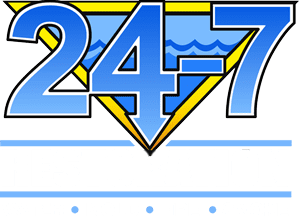After a harsh winter, the first signs of spring bring about a welcome change. Warmer temperatures, blooming flowers, and fresh green grass make every day seem a little brighter. Yet, spring also often brings a significant increase in heavy rain that can not only dampen your spirits, it can damage your home. Heavy downpours can target vulnerabilities in your home and lead to expensive damage. Planning ahead can help you keep water out of your home and prevent the damage that spring flooding brings. You can’t change the weather, but these five tips can help you keep the weather outside and your home safe and dry.
1. Keep your Gutters Clean
It’s common advice to have gutters cleaned in the fall, but Boulder, Colorado winds and storms can deposit a considerable amount of debris into your gutters throughout the winter season. Check your gutters and downspouts for debris, sticks, and clumps of leaves early in the spring to allow water to flow freely when heavy rains arrive. If your gutters drain close to your home’s foundation, downspout extensions should be added to avoid excess water around your home’s exterior.
2. Tackle Roof Repairs
As the temperatures rise, and the snow and ice leave your roof, it’s time to check for signs of winter damage. Damaged shingles, flashing, and cracks provide ways for water to enter your home’s attic or compromise the roof and exterior walls. Replace damaged shingles, repair damage, and seal flashing to keep your roof in top shape for the rainy season.
3. Inspect your Home’s Foundation
Cracks and holes in your home’s foundation provide an entry point for water that can do serious damage to your home’s basement or even the structure of your home. Minor repairs can be completed with concrete patch. However, if you’re unsure about the depth of foundation damage, or you note major cracks or other issues, it’s best to consult a professional.
4. Test the Sump Pump
A sump pump is a great tool to keep water out of low-lying areas, but only if it’s actually functioning properly. Examine your sump pump for winter damage or signs of aging. Before the rainy season arrives, test the sump pump to ensure it’s in working order.
5. Relocate Snow
Spring snows are common in Boulder, Colorado, and often melt quickly. Snow piled around your home can make its way inside as it melts, leaving you with a nasty surprise when the snow is gone. Always keep your home’s foundation cleared of snow, and move snow piles three to five feet away from your home’s exterior. It’s also a great idea to have your landscape sloped so excess water, or melting snow, runs away from your home.
Preventing flood damage is the best way to avert disaster. Keeping your home properly maintained can help you avoid major repairs in the future. However, there are times when Mother Nature throws you a curveball you can’t do anything about. If you do experience flooding in your home, it can be difficult to know how to respond. Whether it’s from a burst pipe or a surprise spring deluge, home flooding is not a disaster you should have to face alone. 24-7 Restoration is a full-service restoration company serving residential and commercial properties in Boulder, Colorado, and the surrounding areas of Longmont, Lafayette, Louisville, Erie, Frederick, Firestone, Larimer County, Niwot, Gunbarrel, Mead, and Lyons. No matter what caused the flood in your home, we can help. Our team responds promptly to your call, ensures all moisture is removed from your home, and completely restores your property like the flood never happened. If you experience flooding in your Colorado home, make your first call the right call and contact 24-7 Restoration right away.


